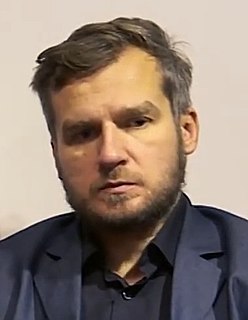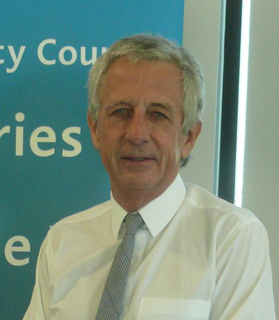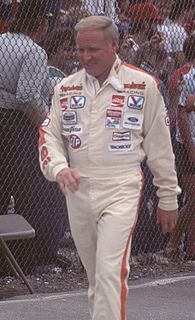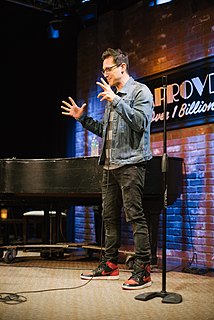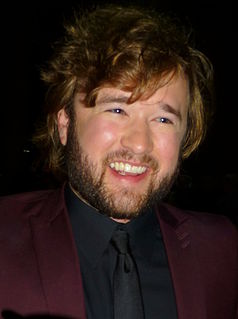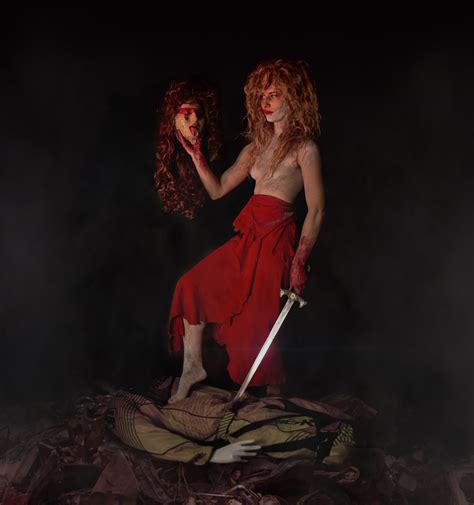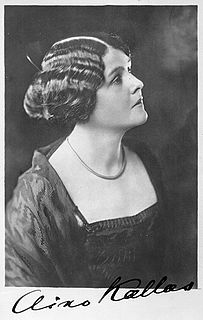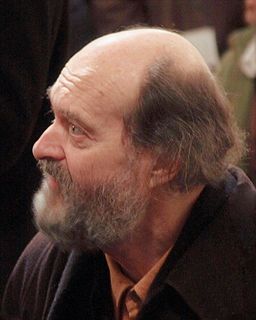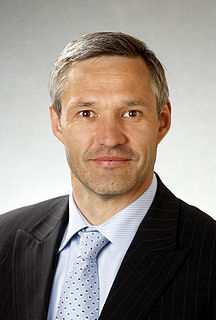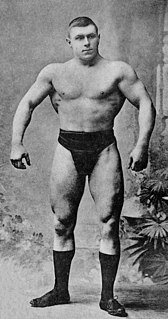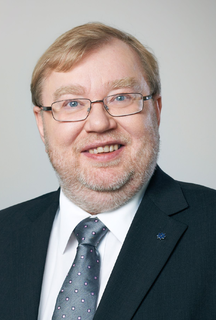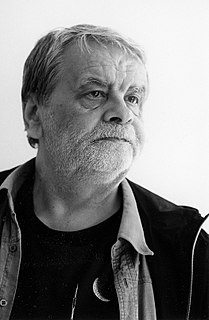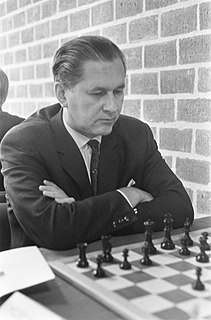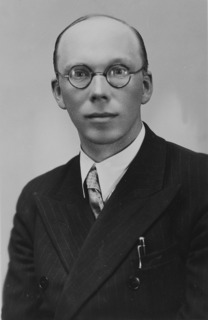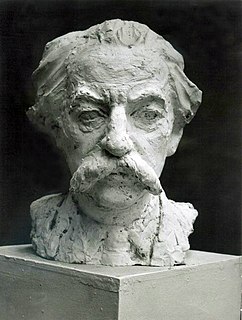A Quote by Jaak Kilmi
It was life under the Soviet system - we were struggling with every big problem. Publicly, my parents had to queue up to buy food, but were able to live secret lives in their private rooms. With the TV set in the living room, we were able to see Western pop culture -a different reality from what we were living. For me, it was like two different universes existed at the same time, and we got used to being in these parallel universes.
Quote Topics
Able
Being
Big
Big Problem
Buy
Culture
Different
Different Universes
Every
Existed
Food
Got
Had
Life
Like
Live
Lives
Living
Living Room
Me
Parallel
Parallel Universe
Parents
Pop
Pop Culture
Private
Problem
Publicly
Queue
Reality
Room
Rooms
Same
Same Time
Secret
See
Set
Soviet
Struggling
System
Time
TV
Two
Universes
Up
Used
Used To Be
Were
Western
Related Quotes
As long as you identify with the universe - which is perfect and can correct material conditions to bring them back into alignment with that Divine perfection - as long as that is where your mind is aligned, it's as though there were two parallel universes. You decide with every thought you think which one you're going to inhabit. Two parallel universes of experience, as it were.
The earthquake in Haiti was a class-based catastrophe. It didn't much harm the wealthy elite up in the hills, they were shaken but not destroyed. On the other hand the people who were living in the miserable urban slums, huge numbers of them, they were devastated. Maybe a couple hundred thousand were killed. How come they were living there? They were living there because of-it goes back to the French colonial system-but in the past century, they were living there because of US policies, consistent policies.
Before I was born, my mom and my dad, they used to rescue dogs, so at one point, they had 13 dogs. And they were all from different litters. It wasn't like they were bred. They were all from different people. And they were all different ages. When I grew up at my dad's house, I think we had seven at one point.
There was a commonality in a lot of the private school experiences that I had of children whose lives were not their own. They thought they were their own, but they were essentially gifted this life by their parents. So they were spending money; they were going on trips - I guess, in a way, it is their life, but they didn't earn it.
These boys, now, were living as we'd been living then, they were growing up with a rush and their heads bumped abruptly against the low ceiling of their actual possibilities. They were filled with rage. All they really knew were two darknesses, the darkness of their lives, which were now closing in on them, and the darkness of the movies, which had blinded them to that other darkness, and in which they now, vindictively, dreamed, at once more together than they were at any other time, and more alone.
My parents are from the South - they were both born in Birmingham - so my dad saw R.E.M. really early on when they were playing college stuff in Athens. He had a bunch of their cassettes from the '80s, and when I was 8, 9, or 10, those were the sort of things that were around the cassette player in the living room.
My parents both renounced their material lives and were living as monks at an ashram in L.A. when they met each other. So we were always raised in this environment and when we moved to the ashram in Florida it was just like, "Oh, wow, now all of a sudden there's more people like us," because we were growing up in the middle of Texas with our parents, always being the weirdos.
Modern thinking is that time did not start with the big bang, and that there was a multiverse even before the big bang. In the inflation theory, and in string theory, there were universes before our big bang, and that big bangs are happening all the time. Universes are formed when bubbles collide or fission into smaller bubles.
